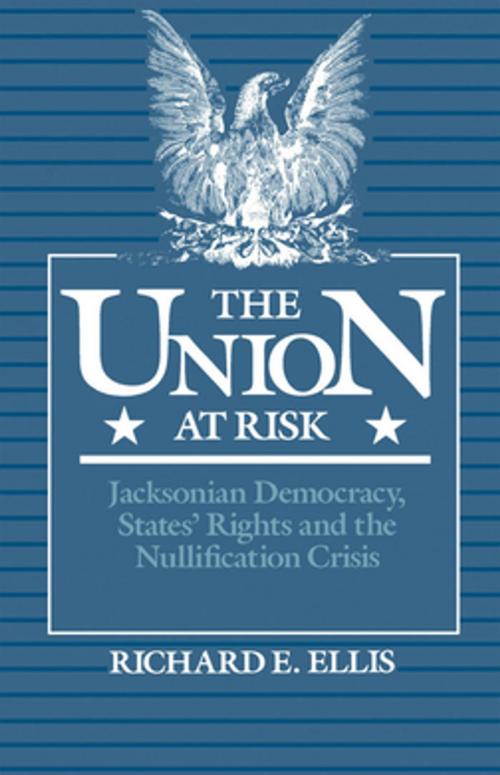The Union at Risk
Jacksonian Democracy, States' Rights and the Nullification Crisis
Nonfiction, History, Americas, United States, 19th Century| Author: | Richard E. Ellis | ISBN: | 9780199879069 |
| Publisher: | Oxford University Press | Publication: | December 28, 1989 |
| Imprint: | Oxford University Press | Language: | English |
| Author: | Richard E. Ellis |
| ISBN: | 9780199879069 |
| Publisher: | Oxford University Press |
| Publication: | December 28, 1989 |
| Imprint: | Oxford University Press |
| Language: | English |
The Nullification Crisis of 1832-33 is undeniably the most important major event of Andrew Jackson's two presidential terms. Attempting to declare null and void the high tariffs enacted by Congress in the late 1820s, the state of South Carolina declared that it had the right to ignore those national laws that did not suit it. Responding swiftly and decisively, Jackson issued a Proclamation reaffirming the primacy of the national government and backed this up with a Force Act, allowing him to enforce the law with troops. Although the conflict was eventually allayed by a compromise fashioned by Henry Clay, the Nullification Crisis raises paramount issues in American political history. The Union at Risk studies the doctrine of states' rights and illustrates how it directly affected national policy at a crucial point in 19th-century politics. Ellis also relates the Nullification Crisis to other major areas of Jackson's administration--his conflict with the National Bank, his Indian policy, and his relationship with the Supreme Court--providing keen insight into the most serious sectional conflict before the Civil War.
The Nullification Crisis of 1832-33 is undeniably the most important major event of Andrew Jackson's two presidential terms. Attempting to declare null and void the high tariffs enacted by Congress in the late 1820s, the state of South Carolina declared that it had the right to ignore those national laws that did not suit it. Responding swiftly and decisively, Jackson issued a Proclamation reaffirming the primacy of the national government and backed this up with a Force Act, allowing him to enforce the law with troops. Although the conflict was eventually allayed by a compromise fashioned by Henry Clay, the Nullification Crisis raises paramount issues in American political history. The Union at Risk studies the doctrine of states' rights and illustrates how it directly affected national policy at a crucial point in 19th-century politics. Ellis also relates the Nullification Crisis to other major areas of Jackson's administration--his conflict with the National Bank, his Indian policy, and his relationship with the Supreme Court--providing keen insight into the most serious sectional conflict before the Civil War.















